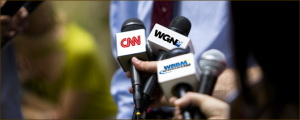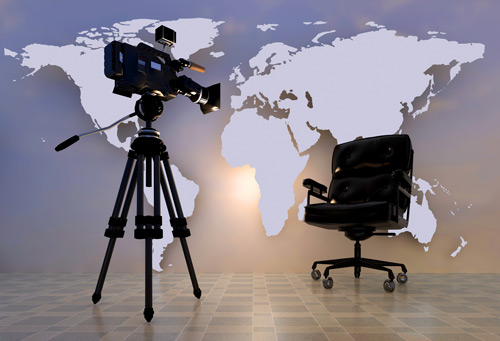
Media interviews are great opportunities to establish yourself as a thought leader. But it also entails a lot of work if you want to get the best results.
For many corporate executives, being interviewed by the media is an opportunity to enhance their personal as well as their company’s image.
It’s a fact that a media interview that results in a positive article in a newspaper, magazine or online news channel carries a lot more credibility and longevity than a paid advertisement that would most likely be skipped and ignored by readers.
However, not every corporate executive is equipped or keen to do media interviews. This means they could be wasting an opportunity to tell their story and reach an audience in a powerful and credible way.
Instead of shying away from doing media interviews, corporate executives and those who want to enhance their and their company’s profiles can take steps to help them prepare for media interview opportunities.
Preparation is the key
Whether it is your first or hundredth time to do a media interview, it is important to be well-prepared. Though the type of interview will dictate the amount of preparation you need to put in, it is vital that you do your homework before you go to any media interview.
Let’s have a look at some of the most common types of media interviews and how you can prepare for them.
Phone interview – This is the most common form of interview nowadays due to the fact that most journalists have several articles to write and they work on tight deadlines.
Face-to-face interview is becoming rarer by the day as journalists need to speak to at least three different sources to write a balanced article. You can just imagine the amount of time it would take to do face-to-face interviews if the sources are located in different cities or states.
And with the ubiquity of technology nowadays, it is much efficient use of journalist’s time to do phone interviews.
How to prepare for a media phone interview?
- Ask the journalist what is the topic of interview – This will help you research and list down a few points to contribute to the interview.
- Ask for specific questions to be covered – Though not all journalists will give the specific questions, some may give an indication of the story angle they are working on for the interview.
- List down your key talking points – Once you know the topic and you have an indication of the story angle, you can identify a few talking points. Having at least two or three talking points with supporting information – e.g. statistics, trends, survey results — will be a good starting point before you do the interview.
Email interview – The emergence of an email interview is also being driven by the availability of technology. With both journalist and interview sources pressed for time, this form of interview is becoming more common.
How to prepare for an email interview?
The preparation for an email interview happens simultaneously as you respond to it. Just as you need to research and have your talking points ready for a phone interview, you can use those information to directly respond to the emailed questions.
It’s best to keep your answers succinct and to the point when answering email interviews. As much as possible, answer the question in the most direct way. Refrain from giving unnecessary information unless the journalist is asking for it.
One of the limitations of an email interview is the lack of instant feedback from the journalist. Unlike in a phone or face-to-face interview where the journalist may ask follow up questions or ask you to elaborate on an answer, the email interview only gives a series of questions that need to be answered as succinctly as possible.
Face-to-face interview – This used to be the primary form of media interview back when journalists would meet their sources to get the information and details for an article. But with the proliferation of technology, many interviews are done either through phones, email and other electronic means.
However, there are still some instances that require face-to-face interview. And there are journalists who prefer to conduct interviews this way particularly if they are writing feature articles or a series of stories that require many hours of interviews.
How to prepare for a face-to-face interview?
- Ask the journalist for the topic – Make sure you are familiar with the topic and that you can contribute something useful and informative.
- Ask for specific questions – This will help in your preparation before you go to the interview. For example, if the journalist wants to ask for a breakdown of your company’s revenue by region, then you can get that level of detail ready to make sure that you can provide useful information. While it is not usual practice for journalists to give you all the questions upfront, it is worth asking for some ‘guide’ questions that will help you prepare the necessary data or information.
- Choose a quiet and comfortable venue – Whether it is your office or a venue chosen by the journalist, make sure that there is a quiet space where you will be interviewed. This will ensure that the conversation can proceed smoothly and without interruption from unnecessary background noise.
TV interview is also a major media opportunity. But we have to dedicate another post to it as it requires more preparation than the usual phone or face-to-face interviews.
While it may seem that you need to spend a lot of time to prepare for media interviews, the thing to remember is that the more often you do it the less time you need to prepare. Most of the executives and spokespeople we’ve worked with who do media interviews on a regular basis attest to the fact that it’s usually the first couple of interviews that take time. But after you’ve done a few, you will have a better feel for the level of time and preparation you need for each interview.
Like any other activity that you do repeatedly, it will come much easier and will take much less time the more you do it.
The most important thing to remember when doing media interviews is to keep it simple. Most journalists prefer that you explain the topic in simple and easy to understand language. No matter how complex or technical the subject is, try to explain and give examples to make it understandable to your interviewer.
